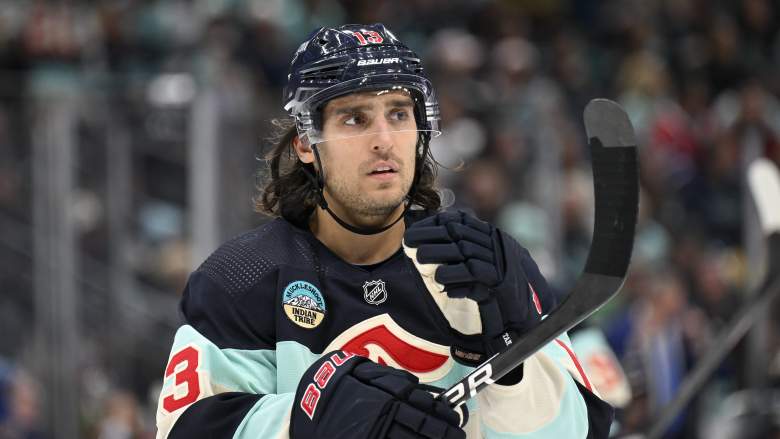Medcalf: Death of Minneapolis cop on the run reflects universal threat

On a sunny day last month in Minneapolis, Officer Jamal Mitchell responded to his last call.
Recently released bodycam footage showed Mitchell approaching 35-year-old Mustafa Mohamed, who appeared to be injured and was allegedly involved in a violent incident involving two victims at a nearby apartment complex.
Mitchell quickly grabbed a pair of blue plastic gloves and prepared to help. Little did he know that Mohamed would soon pull out a gun and start shooting, killing the 36-year-old father of four before Mohamed, too, was killed by arriving officers.
“Squad 512,” Mitchell said before that moment. “It looks like we have at least two bleeding victims out there.”
Then he approached Mohamed. “Who shot you?” Mitchell asked. “Who shot you? Are there any victims inside?”
I have mourned Mitchell’s death. He was a young black man with a family, a fiancée and a future. And by all appearances, his intentions were honorable. I don’t know how black officers view themselves in a police force with a history like Minneapolis’s, but I can only assume it’s not possible to take the job without being aware of its damaging legacy in the Twin Cities.
Those who knew him say Mitchell left his hometown of New Haven, Connecticut, to make a difference in Minneapolis, fully aware of the department’s difficult relationship with the community it serves.
When I first saw his picture after his death, he looked familiar. I don’t know if I ever met him, but we may have run into each other at a Vikings game where he worked security, or maybe at a barbershop nearby or elsewhere in the Twin Cities. At his funeral in New Haven, his colleagues, friends and family said Mitchell wanted to do his work as a community member who recognized the challenges of his profession.
In the bodycam footage from the end of his life, he sounded like someone who valued life.
Faced with the devastating loss of her family, his fiancée Tori Myslajek tried to make sense of everything she and her children had just been through.
“Jamal was our whole world,” she said in a statement.
He died trying to do a good deed and help someone who he felt needed help.
His death was also a reminder: bullets don’t discriminate. While some used his death to make grandiose assumptions about the state of policing or the need to do more to empower officers, the fundamental dilemma was overlooked.
There is a gun problem. Here. There. Everywhere.
The concern is so great that Dr. Vivek Murthy, the U.S. Surgeon General, urged lawmakers to ban “assault weapons and high-capacity magazines for civilian use” — among other reforms — when he declared gun violence a public health crisis last week, the Associated Press reported.
While the exact details of Mohamed’s actions that day remain unclear, he had a violent history with guns. In this video, before he too lost his life after attacking Mitchell, he is said to have walked the streets of a residential neighborhood, ready to hurt anyone who got in his way.
And that is our challenge.
Mitchell’s death was tragic. But the scenario was familiar. Aniya Allen was in a car with her mother when she was struck and killed by a ricochet bullet in Minneapolis. She was only six years old. Deshaun Hill, the star quarterback for Minneapolis North, was only 15 when a man killed him as he walked near school. Kesha Latrice Moore was only 43 when her estranged boyfriend allegedly shot her in her Linden Hills apartment in December.
We cannot judge some shootings more highly than others because of a person’s profession or role in a community. They all had an incredibly profound impact on those who loved them. Their families and friends shed the same tears.
Mitchell’s death confirmed the only significant, universal truth in such situations: Anyone in the Twin Cities, it seems, can become a victim of gun violence.
“We know that attacks on police officers are on the rise in Minnesota and across the country, and Jamal happens to be the latest victim of this senseless and disturbing trend,” Minneapolis Police Chief Brian O’Hara said outside the hospital after Mitchell’s death.
“It has become too easy to attack our police and this must stop. The profession of police officer is different from other professions. As police officers, we know that it is always possible to die in the line of duty and make the ultimate sacrifice. But the harsh reality hurts deeply when it actually happens.”
During that press conference, I got the impression that O’Hara had missed an opportunity to do what he set out to do when he took office: show compassion for a population that faces even greater vulnerability every day, while also enduring the impact of a police department with a documented history of violence.
The real challenge is the proliferation of weapons, and none of us is spared.
However, until this is made the most pressing priority for everyone, we will continue to face these destructive scenarios together. As a result, people in all communities will need to digest these tragedies and rub their eyes – before some of them decide to take sides in a dialogue about gun violence.
Only the weapons – and those willing to wreak indiscriminate havoc on everyone – seem to be on the same side.



